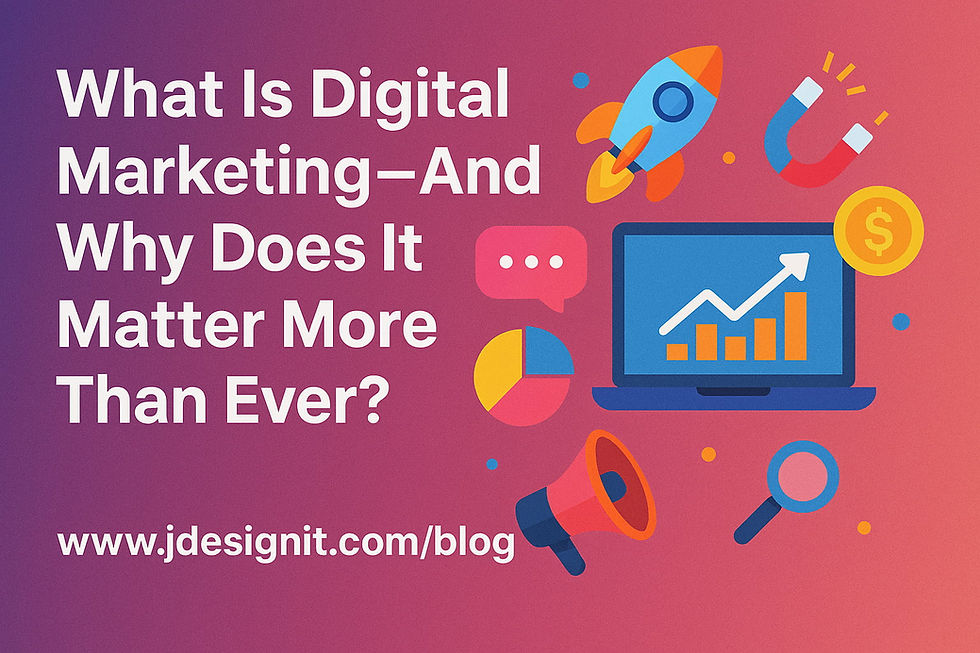🎯 Effective Strategies to Boost Online Marketing
- Jay Chua
- May 26, 2025
- 2 min read
Updated: Jul 22, 2025
Proven Tactics for Growth, Engagement & Brand Visibility
Want to attract more traffic, boost conversions, and keep your audience coming back? These battle-tested digital marketing strategies will elevate your brand and make your message stand out.👇


🔑 Core Strategies That Drive Results
Content Marketing: Valuable content builds trust. 🎥📝 Infographics, blogs, or videos that solve real problems spark engagement and SEO traction.
Social Media Engagement: Don’t just post—interact. 🙌 Comments, stories, and DMs forge real connections.
Search Engine Optimization (SEO): Speed + keywords + quality = traffic. 🚀 Target long-tail keywords and optimize page speed.
❓ What Are the 8 Most Impactful Digital Marketing Strategies?
Here’s your cheat sheet to mastering the digital game:
# | Strategy | Quick Win |
1 | 📧 Email Marketing | Offer exclusive value—no spam. |
2 | 💰 PPC Advertising | Laser-targeted campaigns via Google/Facebook. |
3 | 🤝 Influencer Marketing | Authentic reach via trusted voices. |
4 | 🎯 Affiliate Marketing | Commission-based promotion = low risk. |
5 | 🎬 Video Marketing | Showcase personality & product benefits. |
6 | 🧠 Analytics & Tracking | Track user behavior to refine strategy. |
7 | 📱 Mobile Optimization | Fast, responsive sites boost conversions. |
8 | 🧑🏫 Webinars & Events | Build authority through real-time value. |

🚀 Build a Strong Online Presence
Consistency Is Key: Unified visuals + tone across platforms = brand trust.
Showcase Your Community: Feature user-generated content. 👥
Be Present: Collaborate, donate, or support causes for deeper impact.
🧩 How to Implement These Strategies (The Smart Way)
Set SMART Goals: Think measurable and meaningful.
Know Your Audience: What keeps them up at night? Solve that.
Create a Clear Plan: Use timelines and KPIs to stay accountable.
Use Tools: 📊 Google Analytics, Mailchimp, Hootsuite = simplified management.
Optimize Constantly: What gets measured gets improved. 🔍

💬 Maximize Engagement & Interaction
💬 Reply quickly — show you care.
❓ Ask bold questions that spark replies.
🧠 Use polls or quizzes to invite participation.
📈 How Do You Measure Success?
# | Metric | Why It Matters |
1 | 🌐 Website Traffic | See what’s working and what’s not. |
2 | 🛒 Conversion Rate | Track sales, signups, or downloads. |
3 | ❤️ Social Engagement | Identify most loved content types. |
4 | 📬 Email Open Rate | Know if your message hits the mark. |
🔮 Future Trends You Can’t Ignore
🤖 AI Integration: Smarter targeting, faster analysis.
🔊 Voice Search Optimization: Answer how people actually speak.
🌱 Ethical Branding: Transparency and sustainability resonate.




Comments